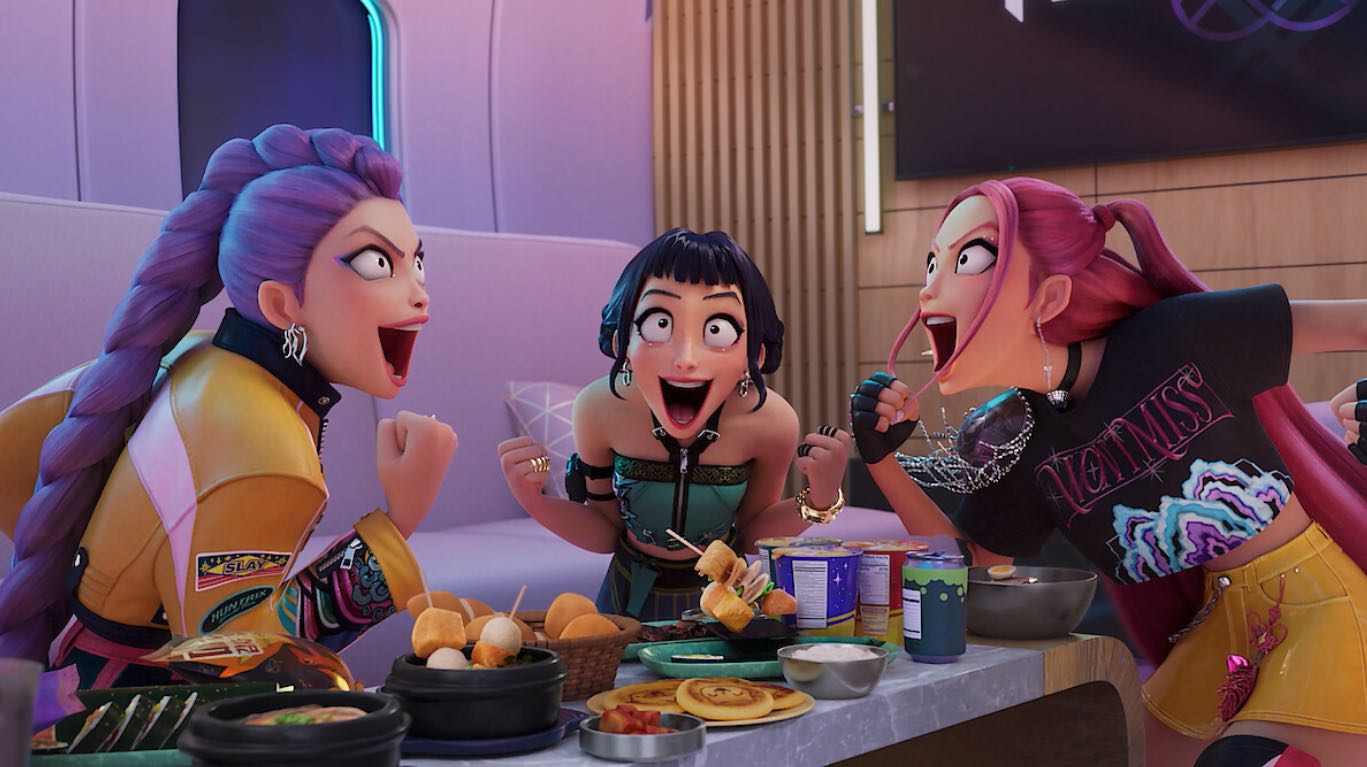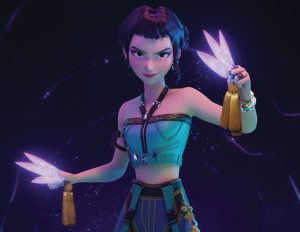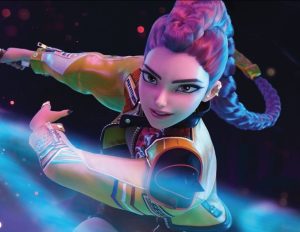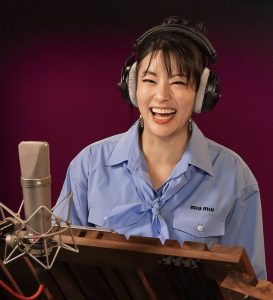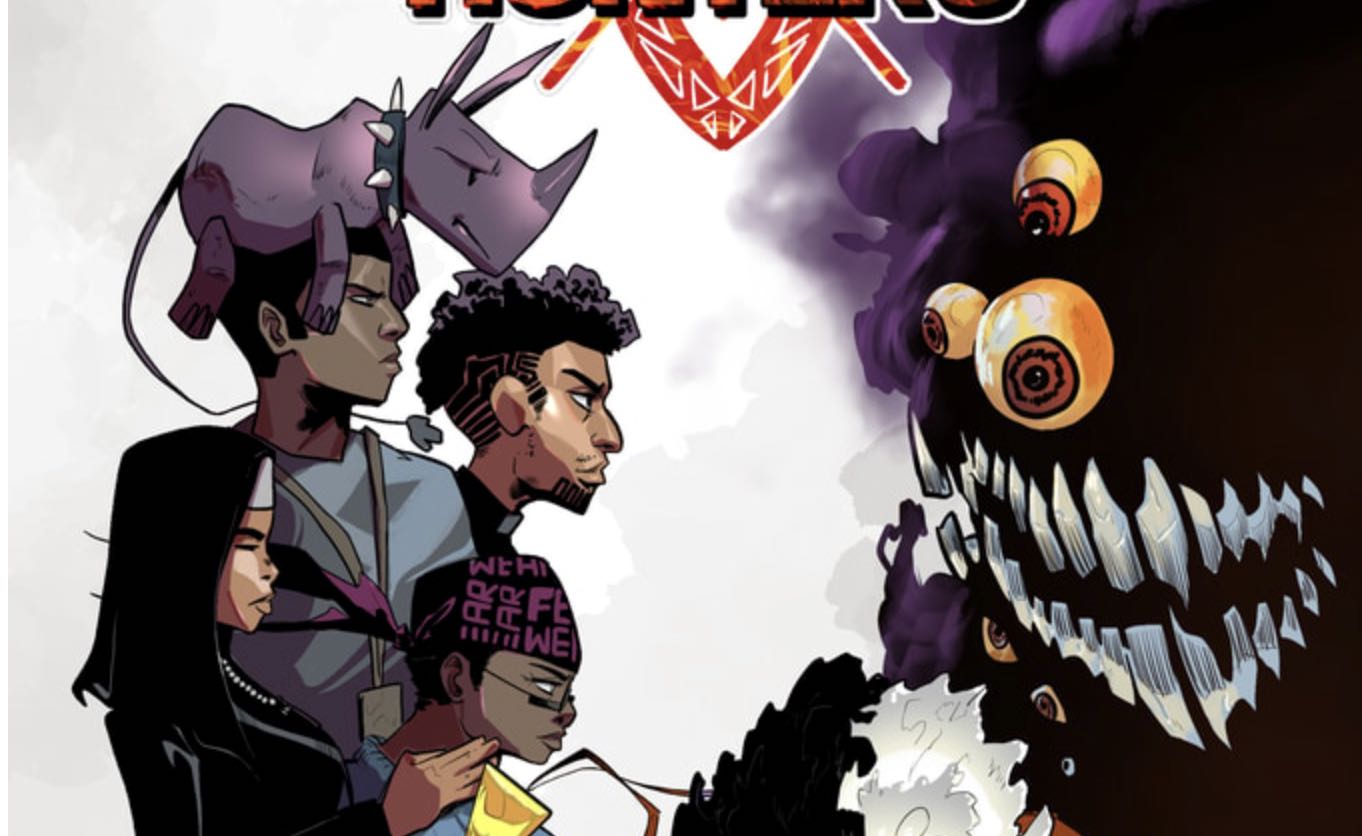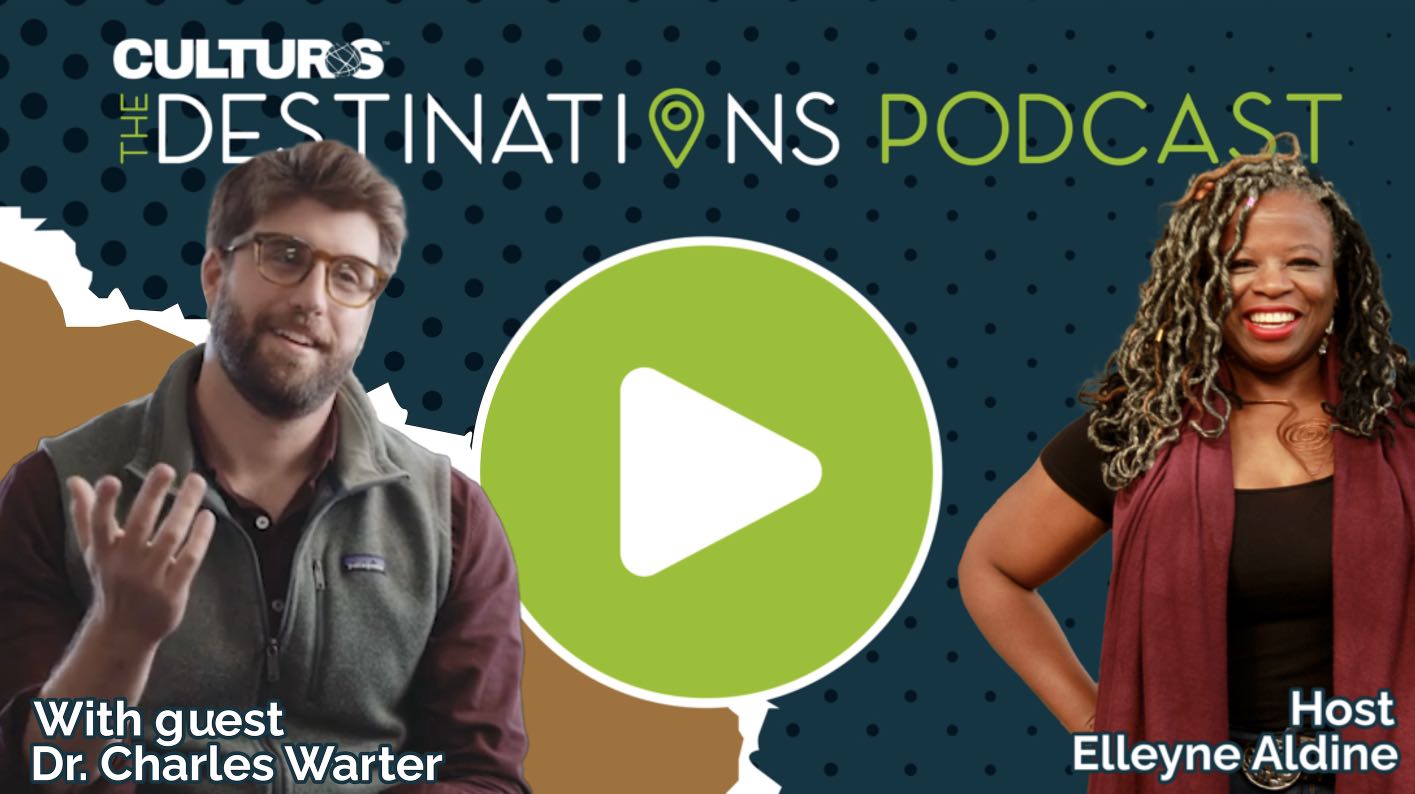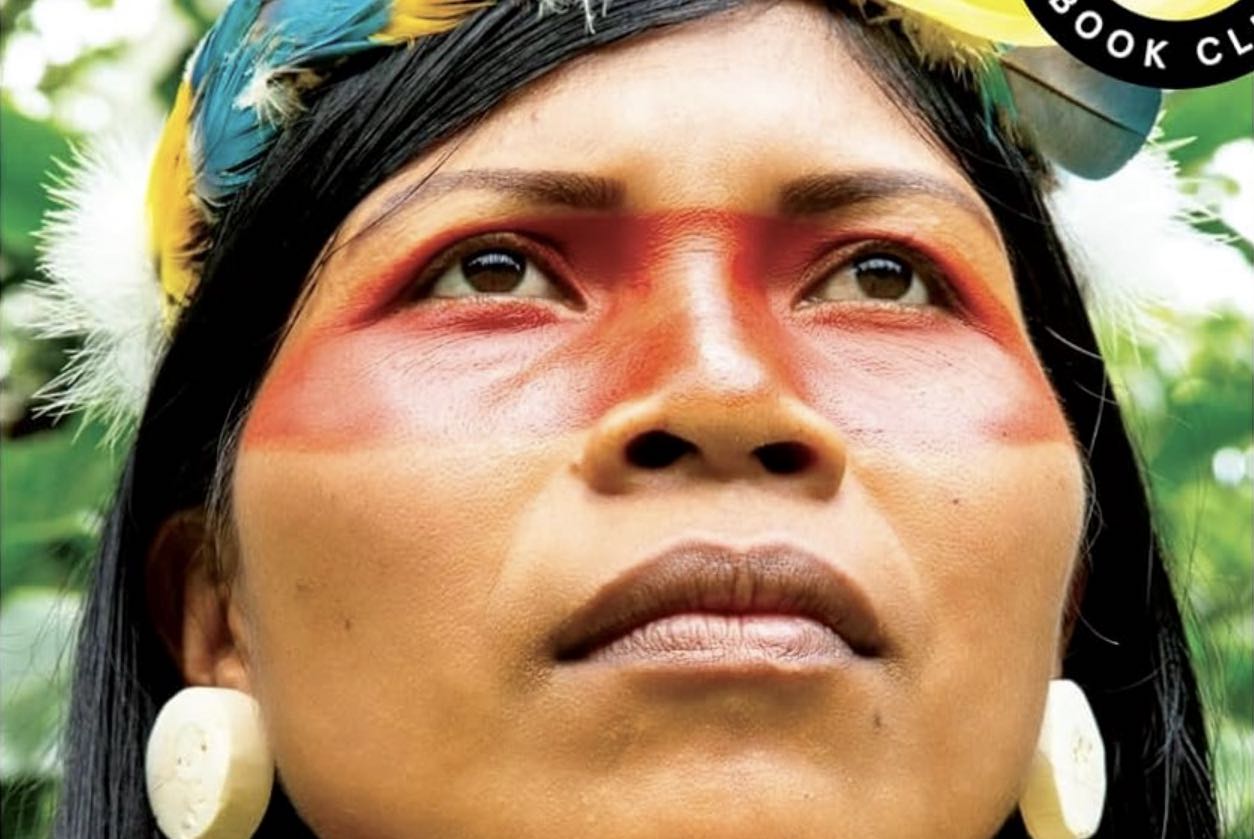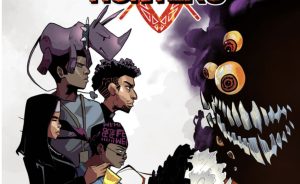Whether it’s in front of the camera or behind it, Netflix’s “Kpop Demon Hunters” exudes the cultural fluidity championed by the Culturs community.
The movie centers around HUNTR/X, a Kpop group made up of three young women: Rumi, Mira and Zoey. Lead singer Rumi strives to hide her half-demon ancestry; Mira is the group’s visual and lead dancer and the “black sheep of her family,” and the youngest member Zoey, the rapper and lyricist, was born outside of Korea in what the movie cheekily narrates “somewhere called Burbank, U.S.A.”
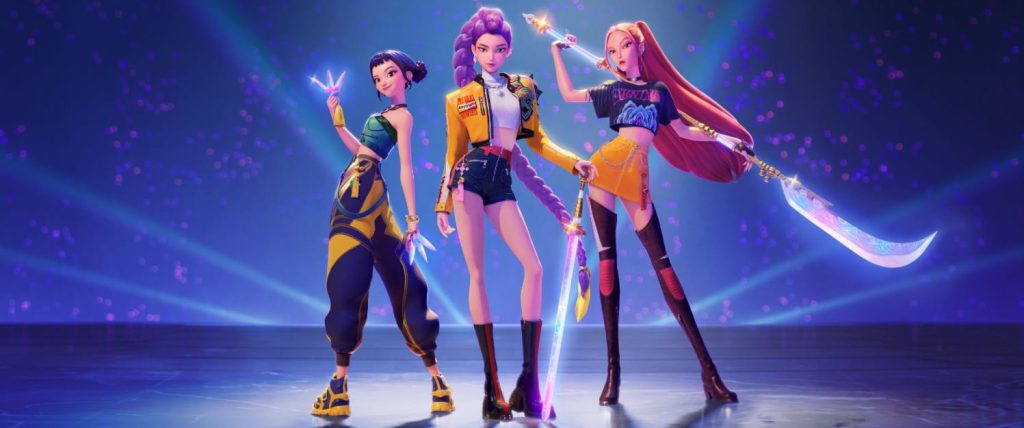
But the cross-cultural vibes don’t end in front of the camera — they extend well behind it, too.
MAGGIE KANG
Maggie Kang, the movie’s co-director, was born in Seoul and her family emigrated to Toronto, Canada when she was 5 years old.
“There’s no other medium like film to break down barriers,” Kang says in an interview with the RepresentASIAN Project. “Making a movie very culturally specific allows you to open people’s eyes and say, ‘Look, this character is Korean, these girls are Korean and the food they eat is Korean. But at the end of the day, we’re all kind of the same anywhere we go.”
In a separate interview with the Coalition of Asian Pacifics in Entertainment (CAPE), Kang says while there were many female superheroes in movies, she didn’t feel like she was seeing them “in the way that I wanted to see them, which was, like, very real.”
“Women who are a little silly and were a lot silly and eat a lot and had potbellies and were allowed to look quote-unquote ‘ugly,’ and make weird faces,” she continues. “So I was like, OK, this is the type of woman I want to see.”
CULTURAL ORIGINS
In addition to Kang, most of the voice and singing actors were born in South Korea and emigrated to the United States or Canada at around the ages of 5 and 6.
May Hong, who plays the speaking voice of Mira, was born in South Korea and emigrated with her family to the U.S. at age 6. She subsequently grew up in Flushing, Queens, N.Y., and after college started a career as a model before going into entertainment.
Andrew Choi, the singing voice of Jinu, was born in South Korea and grew up in the United States after his family emigrated to New Jersey, U.S.A. when he was 5 years old.
Ahn Hyo-seop, the speaking voice of Jinu, was also born in South Korea but emigrated with his family to Canada when he was 6 years old.
Ejae, the singing voice of Rumi, spent much of her early life in both South Korea and the United States, balancing her time between the two countries.
Her experiences in South Korea as a Kpop trainee and the U.S. have significantly influenced her music, allowing her to blend Eastern and Western musical elements seamlessly.
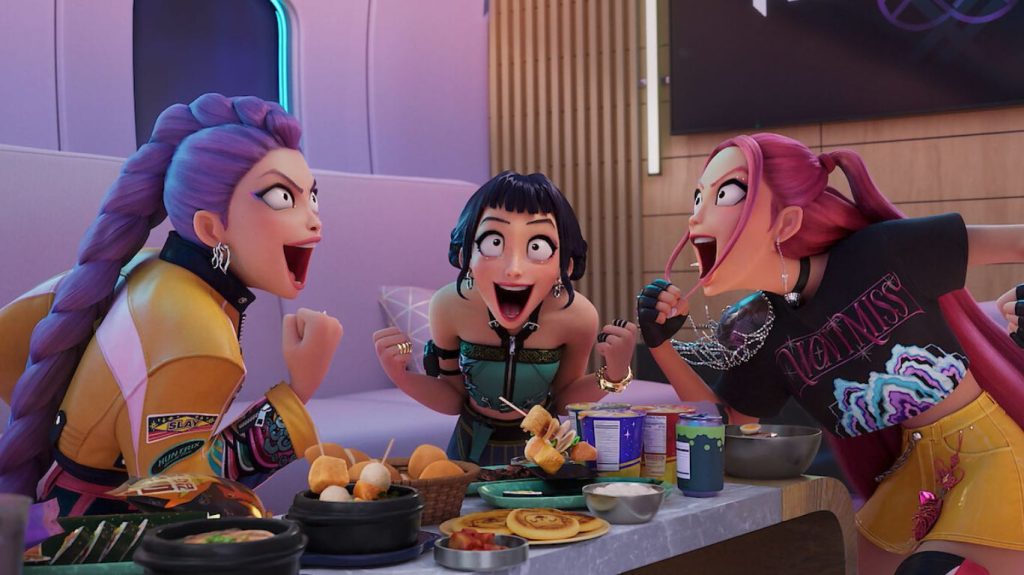
Winning a Grammy for her work on the movie “wouldn’t just be a personal milestone,” she says in an interview with The Korea Herald. “It would be a message to every Asian American girl who’s ever felt impostor syndrome in this industry.”
REPRESENTATION
Additionally, there’s the representation aspect, according to Ejae.
“As an Asian American, specifically a Korean American woman, I don’t really see enough people who look like me in the pop and K-pop industry,” she says.
In an interview with Variety, Ejae says one of the biggest assets she brought when writing the songs “was being bilingual.”
“It was important for our co-director, Maggie Kang, to have Korean in the lyrics, and I just love that it’s not just the verses,” Ejae says, “it was in the actual song too.”
The fact that all three singing voices — Ejae, Rei Ami and Audrey Nuna — are bicultural was important too, according to Ejae.
“It’s not just Korean girls singing the songs,” she says. “It feels surreal, and that’s what I wish I had growing up. People didn’t know where Korea was. I grew up used to watching animation not set in Korea.”
The movie’s been so popular that when Netflix scheduled a series of sing-along showings at movie theaters in North America and Europe, they sold out fast.
“When I went to the sing-along, I saw these little girls singing Korean, which warms my heart,” Ejae says. “It feels great to spread Korean culture all over the world. It wasn’t like randomly adding Korean words; it was important to me to make Korean work seamlessly into English. It was a great learning experience and a fun challenge to have, and a great way to express a song that both Koreans and Americans can relate to.”
Nuna, who sings as Mira, grew up in the U.S. “hiding my skanky-ass [Korean] lunches” and is very “grateful” for the broad acceptance of the movie.
‘BETWEEN TWO WORLDS’
Being raised in the suburbs of New Jersey, U.S.A., “not really surrounded by a lot of people who looked like myself, I think I grew up feeling this sense of comfort in walking these two lines between these two worlds,” Nuna says in an interview on the Zach Sang Show.
“And I think because of that, I’ve been very emboldened to go on this journey of embracing my full self and not denying any parts of myself and just being able to say, ‘We’re all unique, we’re all different and we can be our full selves,’ and I think that’s what the world needs is for us to all be our full selves,” she says. “So in that vein, I think I would like to just send a rallying call to all the weirdos, loners, outsiders, and kind of just create a sense of reclaiming this idea that we should be our full selves. I think in embracing all your fears, your full self is really, ultimately what allows you to be your best self.”
The movie’s success is “really surreal,” Nuna adds.
“I love that this movie is not just, it is a kid’s movie, obviously, but the level of depth, the level of layers, the kind of veil that it pulls back on some unspoken parts of Korean culture, Korean family dynamics, I’ve seen TikToks breaking down the psychology of the characters in this movie,” she says. “I think the reason that it is resonating at this level, and not just with the kids, but the adults is because, yes, it is so likable, so entertaining. It’s so colorful, it’s exciting.
“But at the same time, it just really speaks to the Korean American, and therefore the human experience, of just belonging and facing your fears and some really philosophical-type shit. And that is just, to me, the biggest accomplishment for the team,” she concludes.
FINDING BELONGING
Ji-Young Yoo, who plays the speaking voice of Zoey, notes in a Netflix behind-the-scenes video that her character is “the only Korean American in the group, and I think Zoey is trying to figure out what that means and where she belongs.”
Arden Cho, who was born and raised in the U.S. and is the speaking voice of Rumi, says in that same Netflix BTS video that she relates “so much to Rumi.”
“Growing up in America, I wanted to look totally different, I wanted to have blond hair and blue eyes and that was what was beautiful,” she says. “I always felt like being Asian or looking the way that I did was something to hide. To be a part of a film like this, where Rumi is Korean, and part-Demon, part-Hunter, all of this is what makes her truly special and amazing. This movie was so meaningful, and I hope that girls growing up like me wouldn’t think ‘I want to be someone different,’ but that they would want to be who they are.”
For Cho, fully embracing her Korean side didn’t take place until her 20s.
“My first 20 years of life, if anybody asked me what I was, I said I was American. If anybody asked me where I was from, I said Texas. I didn’t understand what it meant. Oh, my mom and dad? Yeah, they’re Korean, but I’m American, right? That was me as a child,” she says in a Collider Ladies Night podcast interview.
Nowadays, in her thirties, Cho is fully aware of who she is.
“Now, I understand, I’m Korean American. I’m Asian American, right? And as much as I try to be as Korean as possible, that’s hard. And I’ve tried,” she says, adding: “I think that’s why I love doing things like ‘Kpop Demon Hunters’ or ‘Maybe Happy Ending’ because I might not be Korean Korean, but I can get to feel really proud of our culture and where we come from and things that when growing up might have felt like a handicap or might have felt like something to hide are now something I’m so immensely proud of.”












